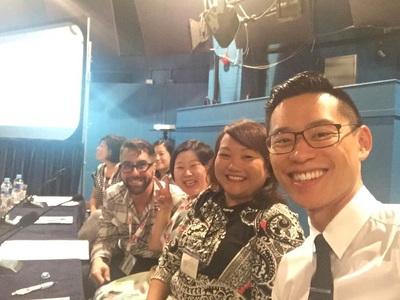|
Takeaway:
Details With a population of 1.35 billion, China may well have the largest potential audience in the world – but, as the panel discussed, to be successful in the Chinese market international companies need to do more than just rock up and try to sell their show, make a pile of cash, then leave. To make it work, collaboration is key. Host Alex Chien kicked off the session by saying that, to the uninitiated, working in China can be a baffling experience, not just because of the language differences but also the cultural differences, so you need to talk to people who have already been there, learned and survived. China is not just a market for international companies to try to get into – the major channels and producers there also want to make their mark in other countries, which Maggie Liang said is why co-productions with strong partners are important to Chinese companies. Sharon Gomes Thomas said that her company (Little Airplane) doesn’t worry about owning the IP of a show, but rather thinks about the process as being a co-pilot on something that works in both the Chinese market and the international market. Her takeaway philosophy when it comes to working in China is: play nicely together. She also commented on the different approach to the story arc in China, likening it to a dragon: bold at the beginning like a dragon’s head and body, then tailing off at the end. Xin Yu echoed comments about collaboration being key, and also highlighted that the lower budgets and shorter timescales that are common in China do not mean that Chinese companies don’t value the quality of their product – it’s all about striking the right balance. Independent writer and producer Dave Skwarczek talked about his overwhelmingly positive experience of writing a 52-episode show for a Chinese company – including having complete creative freedom, a fast turnaround and being paid on time. The biggest challenge he faced was making sure that the English to Chinese translations of crazy-character idioms (such as ‘put your money where your mouth is’) made sense, and he brought in a translator to make this work. Finally, Trevor Lai made the point that you shouldn’t think of China as a market that is there for you to take advantage of, but instead concentrate on your craft and what you can bring to the table – and find a good Chinese partner. The overwhelming message from all the experts was undoubtedly that success always depends on a strong local partnership.
1 Comment
|
The Media Pioneers Ltd
124 City Road, London EC1V 2NX
Tel:+44(0) 20 8390 4831
Email: [email protected]
124 City Road, London EC1V 2NX
Tel:+44(0) 20 8390 4831
Email: [email protected]
© 2014 - 2024 THE MEDIA PIONEERS LTD. ALL RIGHTS RESERVED


